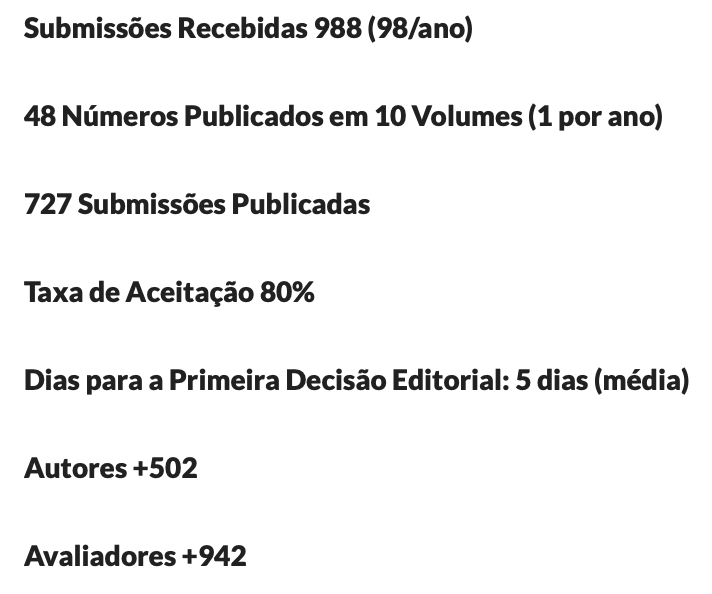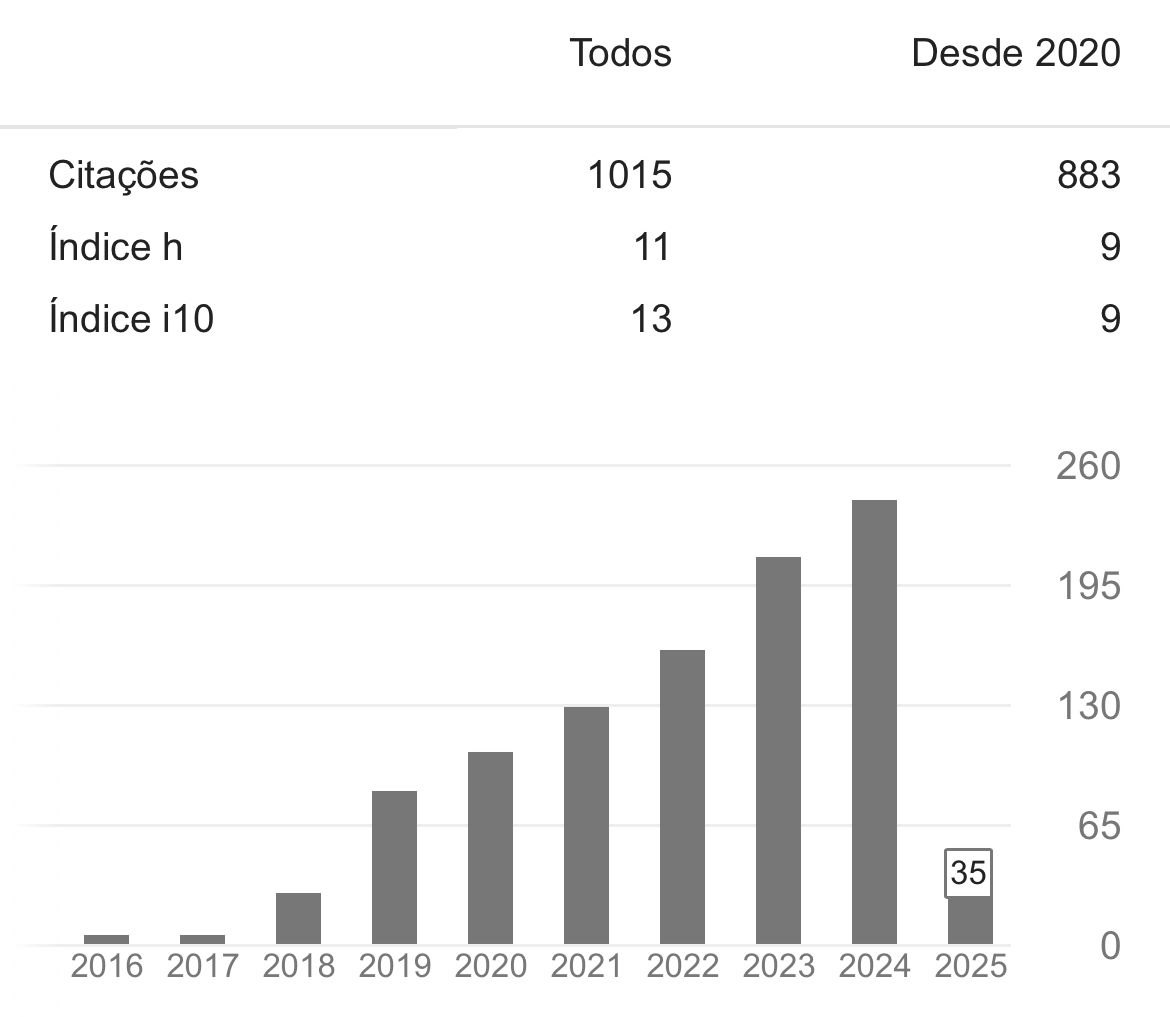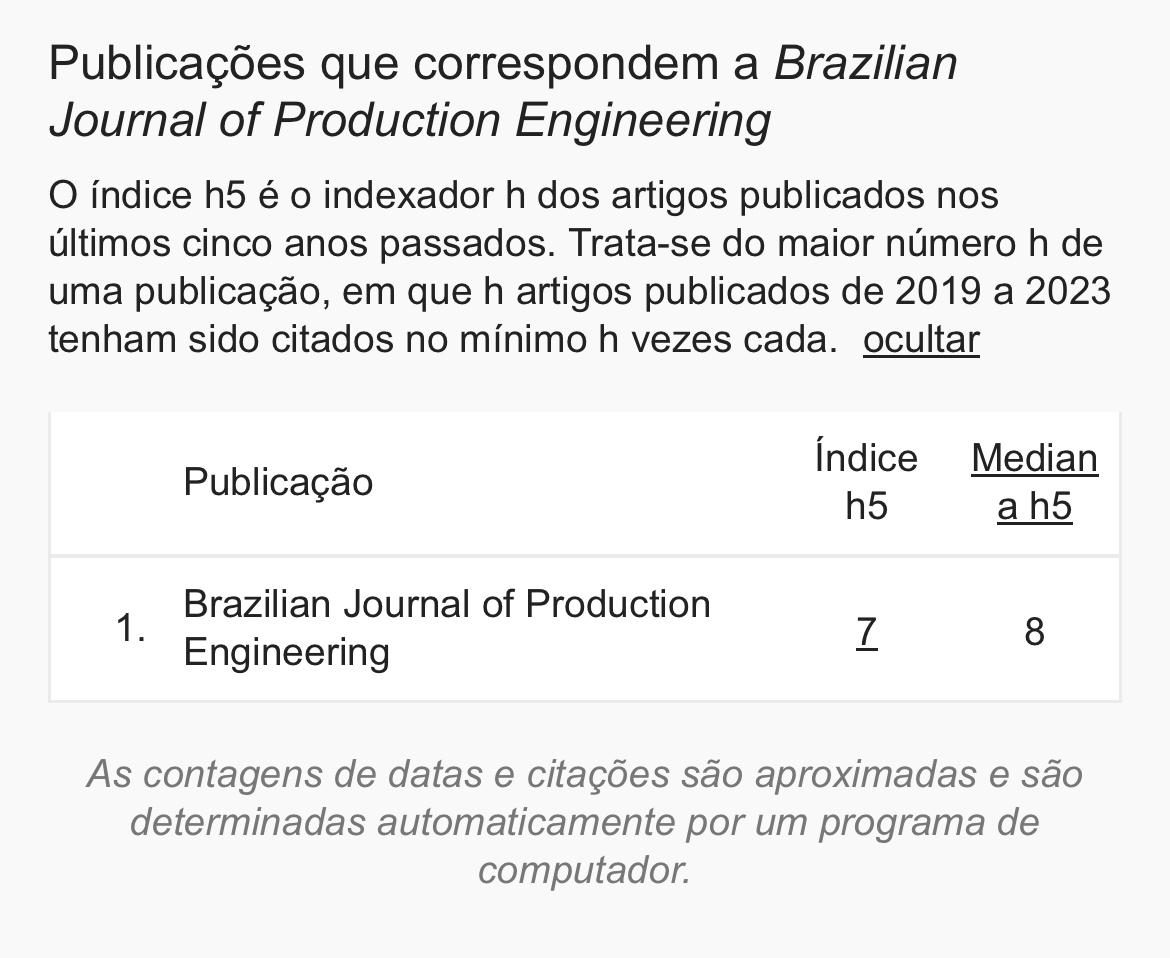
Foco & Escopo
A BJPE está delineada conforme os eixos temáticos elaborados pela ABEPRO e assim tem foco em:
- Projetos, operações e melhorias dos sistemas que criam e entregam os produtos (bens ou serviços) primários da empresa;
- Técnicas para o tratamento das principais questões envolvendo o transporte, a movimentação, o estoque e o armazenamento de insumos e produtos, visando a redução de custos, a garantia da disponibilidade do produto, bem como o atendimento dos níveis de exigências dos clientes;
- Resolução de problemas reais envolvendo situações de tomada de decisão, através de modelos matemáticos habitualmente processados computacionalmente. Aplica conceitos e métodos de outras disciplinas científicas na concepção, no planejamento ou na operação de sistemas para atingir seus objetivos. Procura, assim, introduzir elementos de objetividade e racionalidade nos processos de tomada de decisão, sem descuidar dos elementos subjetivos e de enquadramento organizacional que caracterizam os problemas;
- Planejamento, projeto e controle de sistemas de gestão da qualidade que considerem o gerenciamento por processos, a abordagem factual para a tomada de decisão e a utilização de ferramentas da qualidade;
- Conjunto de ferramentas e processos de projeto, planejamento, organização, decisão e execução envolvidas nas atividades estratégicas e operacionais de desenvolvimento de novos produtos, compreendendo desde a concepção até o lançamento do produto e sua retirada do mercado com a participação das diversas áreas funcionais da empresa.
- Conjunto de conhecimentos relacionados à gestão das organizações, englobando em seus tópicos o planejamento estratégico e operacional, as estratégias de produção, a gestão empreendedora, a propriedade intelectual, a avaliação de desempenho organizacional, os sistemas de informação e sua gestão e os arranjos produtivos;
- Formulação, estimação e avaliação de resultados econômicos para avaliar alternativas para a tomada de decisão, consistindo em um conjunto de técnicas matemáticas que simplificam a comparação econômica;
- Projeto, aperfeiçoamento, implantação e avaliação de tarefas, sistemas de trabalho, produtos, ambientes e sistemas para fazê-los compatíveis com as necessidades, habilidades e capacidades das pessoas visando a melhor qualidade e produtividade, preservando a saúde e integridade física. Seus conhecimentos são usados na compreensão das interações entre os humanos e outros elementos de um sistema. Pode-se também afirmar que esta área trata da tecnologia da interface máquina - ambiente - homem - organização;
- Planejamento da utilização eficiente dos recursos naturais nos sistemas produtivos diversos, da destinação e tratamento dos resíduos e efluentes destes sistemas, bem como da implantação de sistema de gestão ambiental e responsabilidade social.
- Universo de inserção da educação superior em engenharia (graduação, pós- graduação, pesquisa e extensão) e suas áreas afins, a partir de uma abordagem sistêmica englobando a gestão dos sistemas educacionais em todos os seus aspectos: a formação de pessoas (corpo docente e técnico administrativo); a organização didático pedagógica, especialmente o projeto pedagógico de curso; as metodologias e os meios de ensino/aprendizagem. Pode-se considerar, pelas características encerradas nesta especialidade como uma "Engenharia Pedagógica", que busca consolidar estas questões, assim como, visa apresentar como resultados concretos das atividades desenvolvidas, alternativas viáveis de organização de cursos para o aprimoramento da atividade docente, campo em que o professor já se envolve intensamente sem encontrar estrutura adequada para o aprofundamento de suas reflexões e investigações.















































































